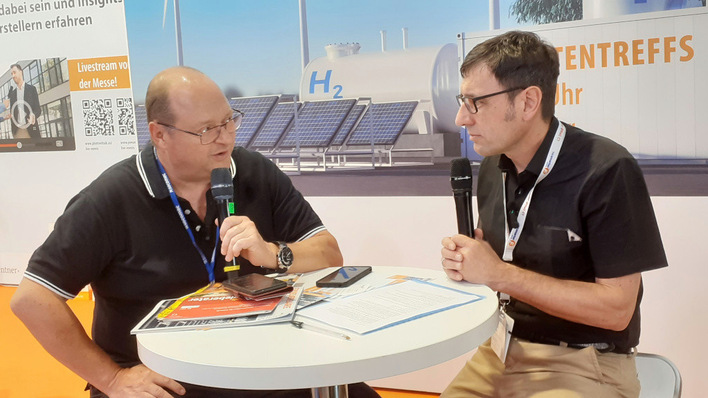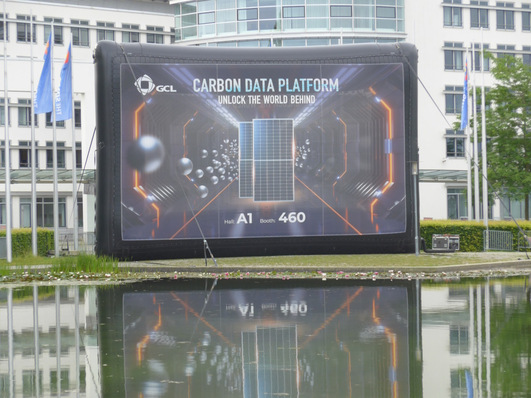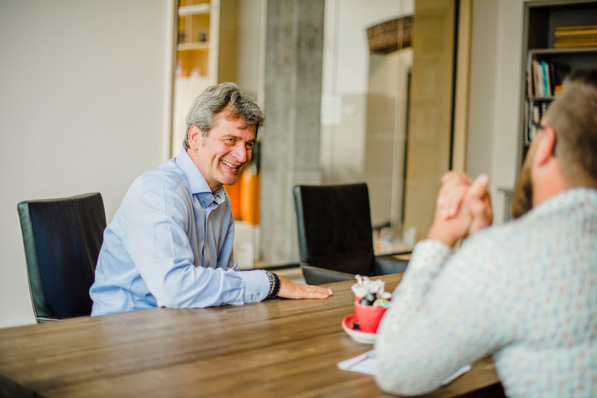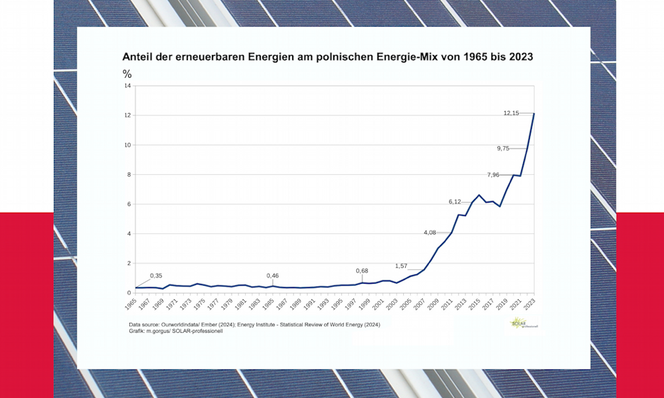How is the demand for solar modules developing?
Wolfgang Seidler: The demand for solar modules has stabilised over the past year and is still at a very high level. What we are noticing at Sonnenkraft is the strong demand for transparent solutions for patio roofs, carports, balconies and fences. That is why we are currently building a new line with the latest Topcon cell technology at our plant in Wernersdorf. This will not only increase production capacity, but will also incorporate the latest technology.
Which modules are doing particularly well and which are more difficult to sell?
Solar modules with added value - that is our future. This means that we are focussing on quality made in Austria for our Power module series. In addition to their aesthetic design, the modules impress with their added technological value. The low-glare and low-reflection Deflect surface of these glass-foil modules offers advantages in the vicinity of airports, next to roads or housing estates. For areas where shading may occur, we manufacture modules with Maxim optimisers. The robust Alpin module is suitable for particularly high snow loads. The simple solution for balconies or gardens is the plug & play module with integrated inverter.
See also: Without solar factories in Europe there can be no energy transition
Kioto Solar increased its production capacity to 340 megawatts per year some time ago. This is not much compared to the competition from the Far East. What role does the sheer size of production play in being able to compete with the large Asian manufacturers?
We are consistently focussing on the strengths of Austrian production. We can't compete with the Asians in terms of size, but we realise that regionality and quality are very important to our customers. For them, a local contact, short delivery routes and local jobs are important. As a result, our focus is not on quantity but on quality. As a system provider with solar modules, Electricity storage units, solar collectors and water storage tanks, we are also in the unique position of being able to offer not only high-quality products, but also comprehensive solutions and systems. The storage of solar energy is the topic of the energy transition.
Will you be expanding this further?
Solar energy storage is the topic of the energy transition. Our new inverters for large systems from 35 kilowatts will complement our solar energy storage portfolio in future. The investment in Huch GmbH will also further strengthen our storage expertise in the field of heat storage.
What plans are you currently pursuing in terms of production capacity and technology?
In St. Veit an der Glan, we are currently converting to a larger 182 millimetre cell, which will enable higher output classes of up to 410 watts for our solar modules. Our proven product advantages such as low-glare Deflect glass and the option with optimisation for shadow management will be retained. A new line with the latest Topcon cell technology will be put into operation at the Wernersdorf plant. This will not only increase production capacity, but also incorporate the latest technology in the glass-glass sector.
In which segments can European manufacturers still hold their own against the major competitors from the Far East?
We see the double-glazed module segment, with its wide range of applications, as the main focus here. And we are constantly developing in this segment, both by expanding our production capacity and by taking the lead in technology.
What technological developments do you have in mind?
One innovation for 2024 is the new Terracotta solar module. Thanks to the brick-red glass and the frame of the same colour, the module can be perfectly integrated into existing roof coverings and thus offers an aesthetically pleasing solution for listed buildings and historic old building roofs, but also for new buildings with tiled roofs. Visually appealing, intelligent photovoltaic modules that can be integrated into the building envelope - this is the future. There is enormous potential for equipping unused facades or car parks with photovoltaic solutions.
What support do you need from politicians to actually establish European production?
100 per cent electricity from renewable energies by 2030 and climate neutrality by 2040: the political goals are ambitious. The demand for photovoltaics is enormous. Above all, we would therefore like to see transparency and continuity in the subsidy situation. A bonus for the use of European components would also be desirable in order to strengthen the domestic economy.
Also interesting: Aptera Motors finds supplier to build battery packs for solar EV
What strategies do you have for working with tradespeople and planners to encourage them to build with European modules?
Craftsmen and planners are extremely important to us. Our partners not only have the necessary expertise to install our systems professionally. They are passionate about solar energy, are committed to the energy transition and are dedicated and motivated for the future - just like us. We can only succeed in guiding our customers step by step towards energy independence with such tradespeople. And that is exactly what we want to achieve. As a system provider, we also have the complete portfolio. We have planned a major tradesman campaign for 2024: 'Together for local trades with locally manufactured products. (mfo)
The questions were asked by Sven Ullrich








